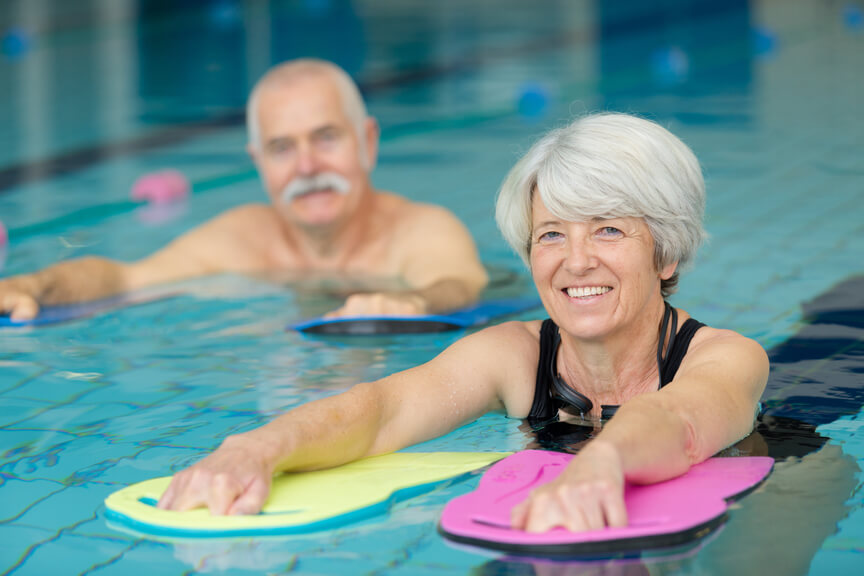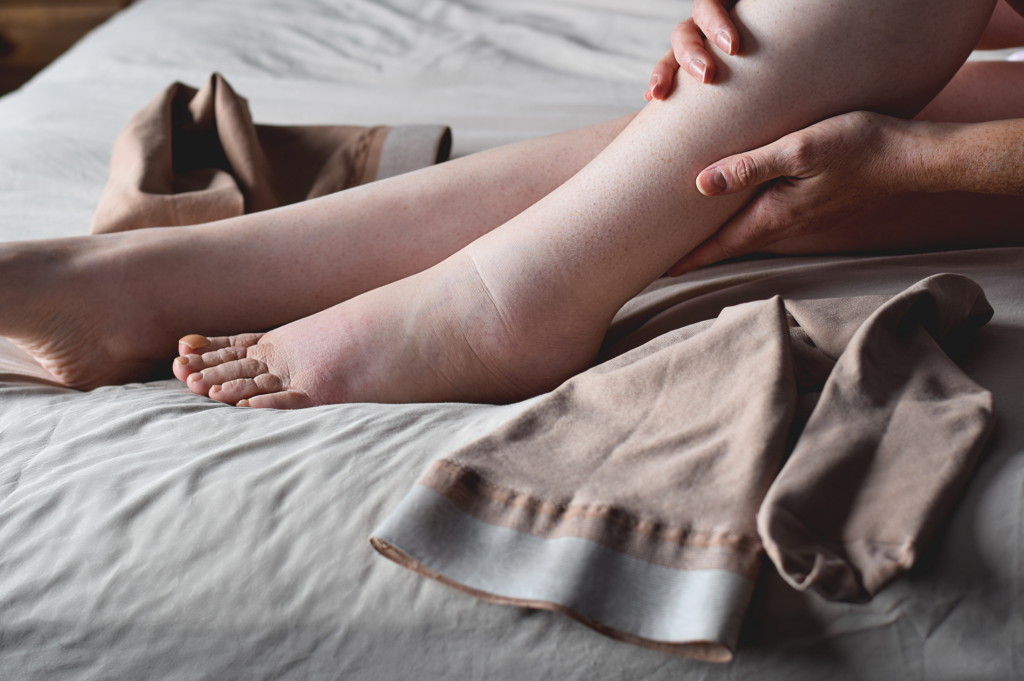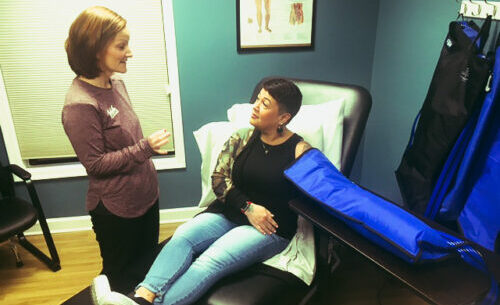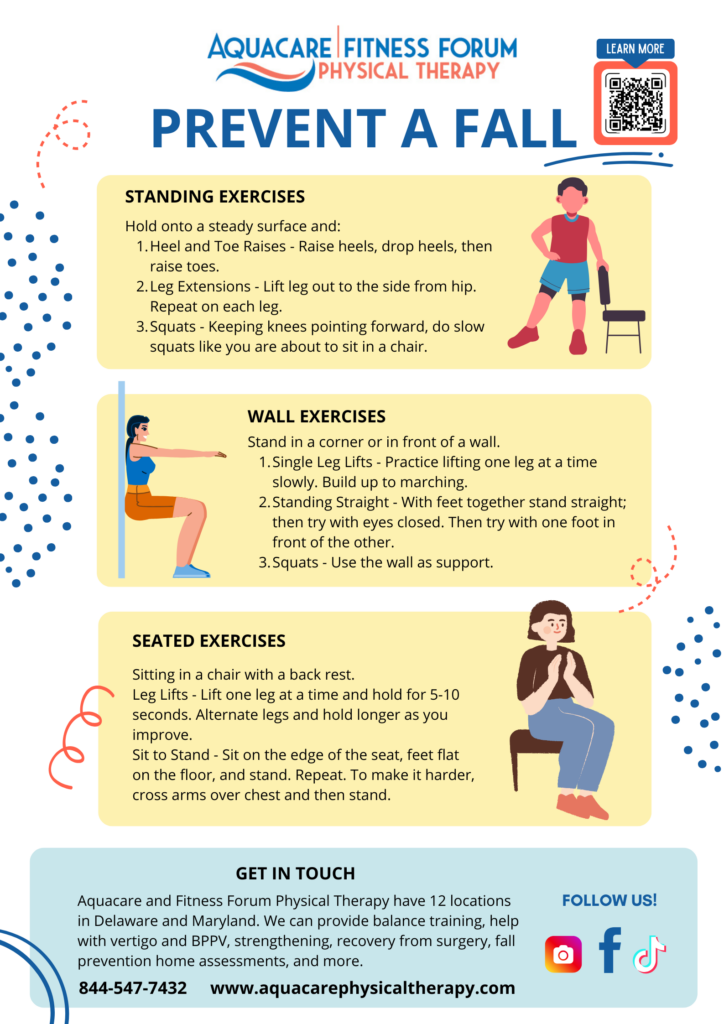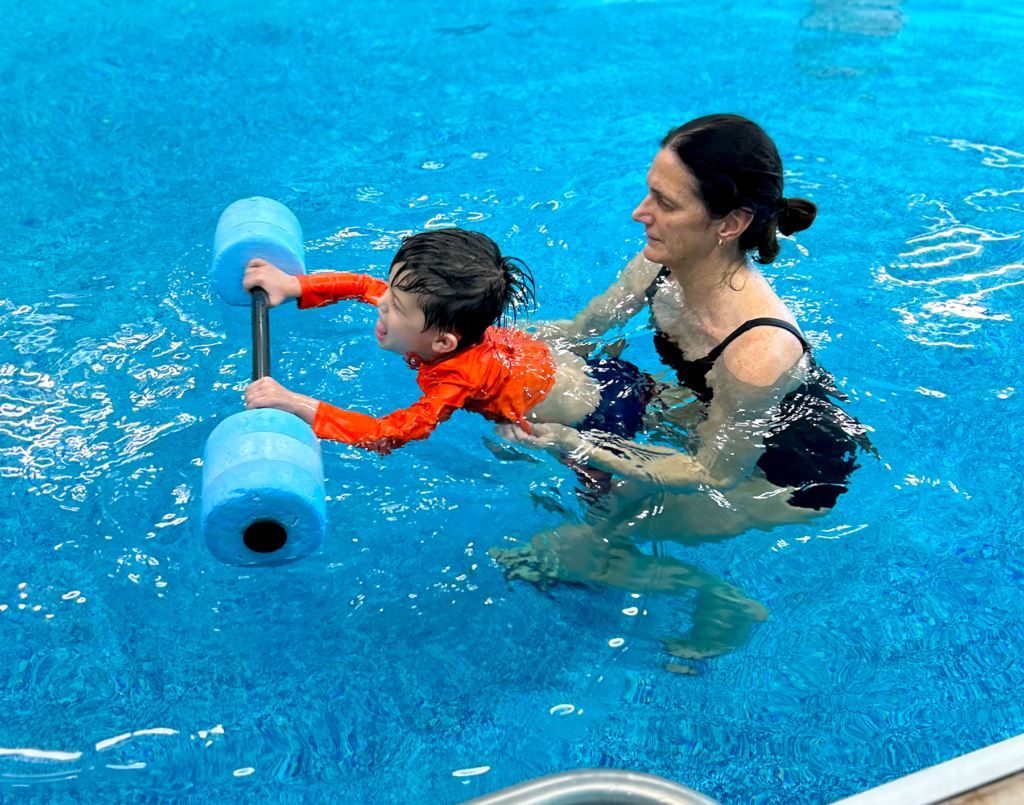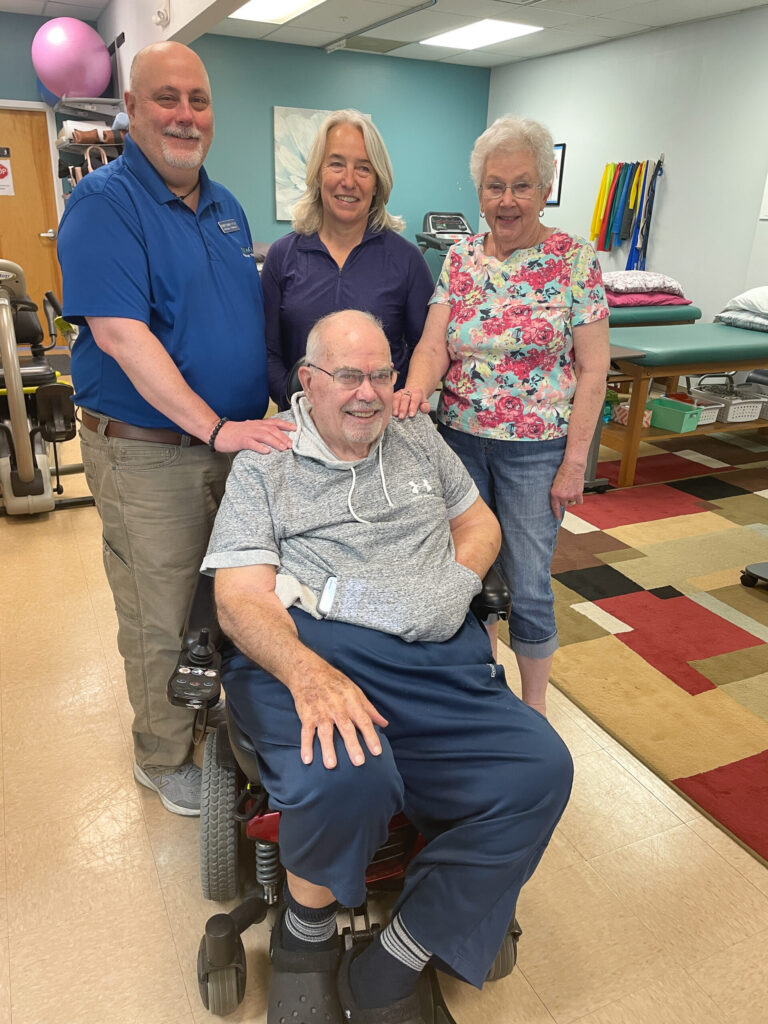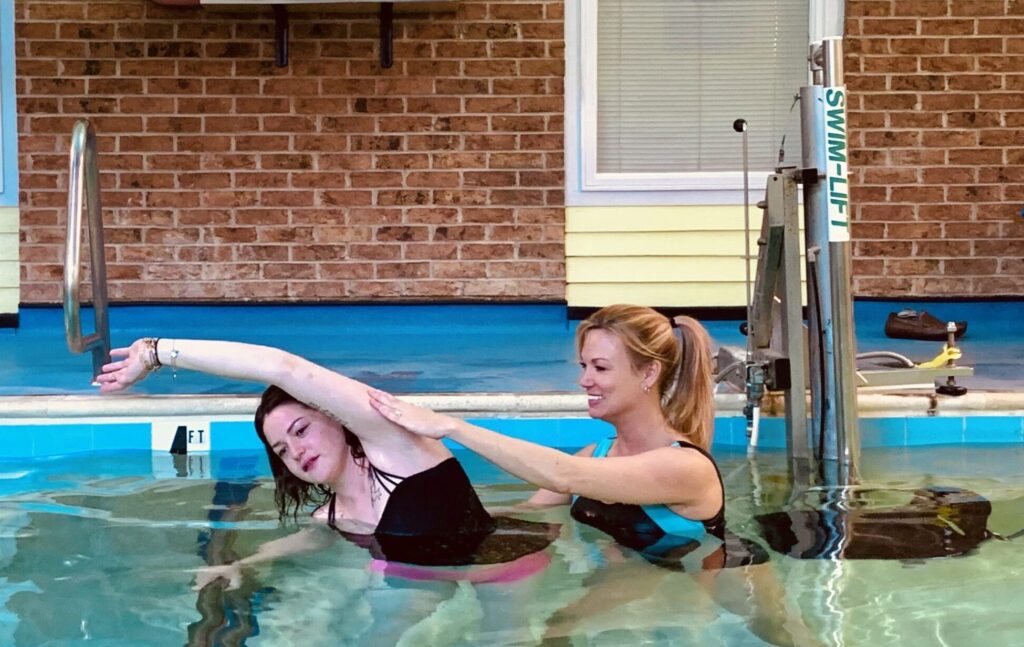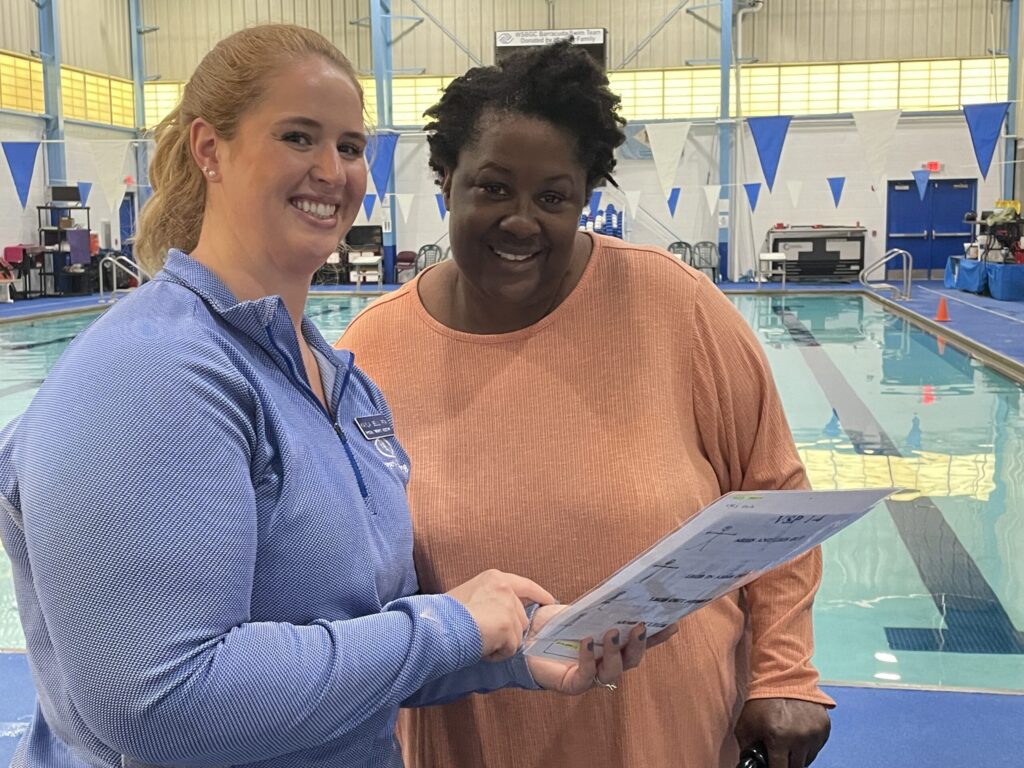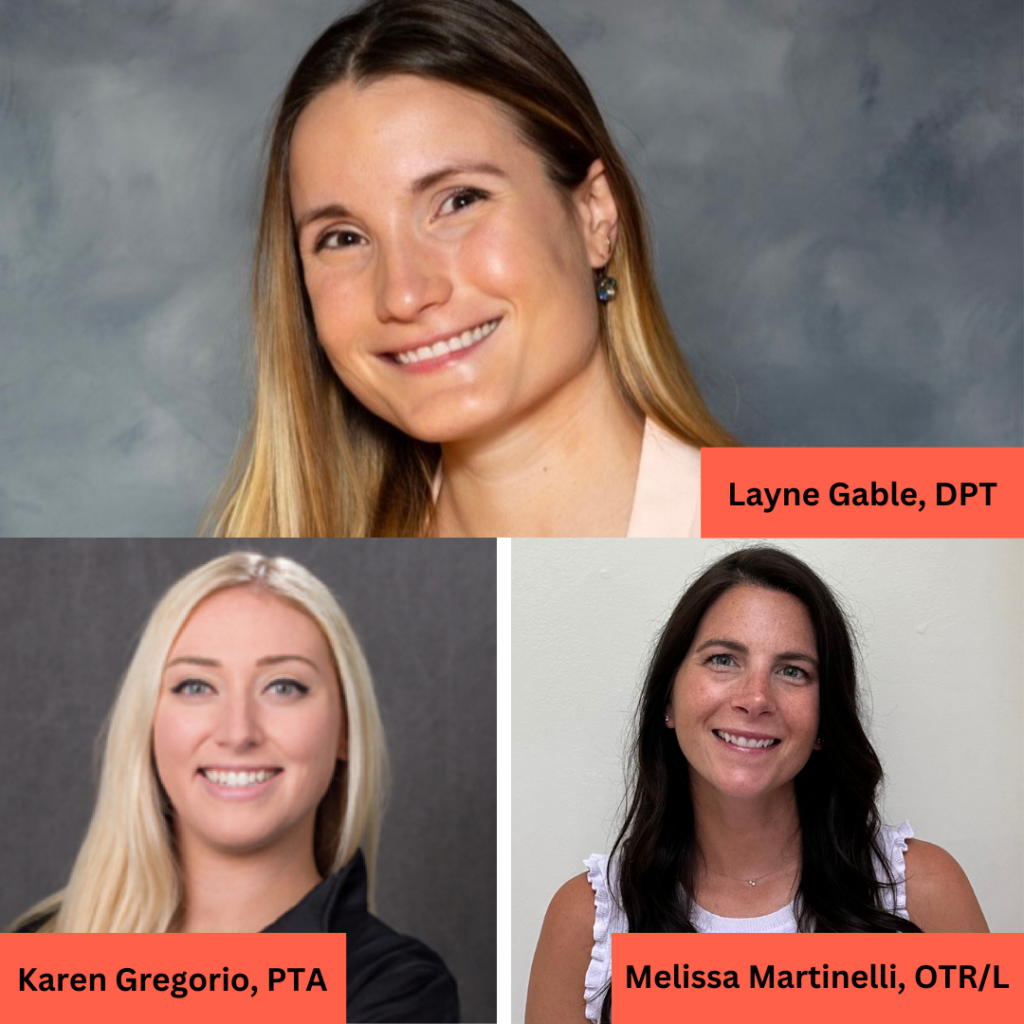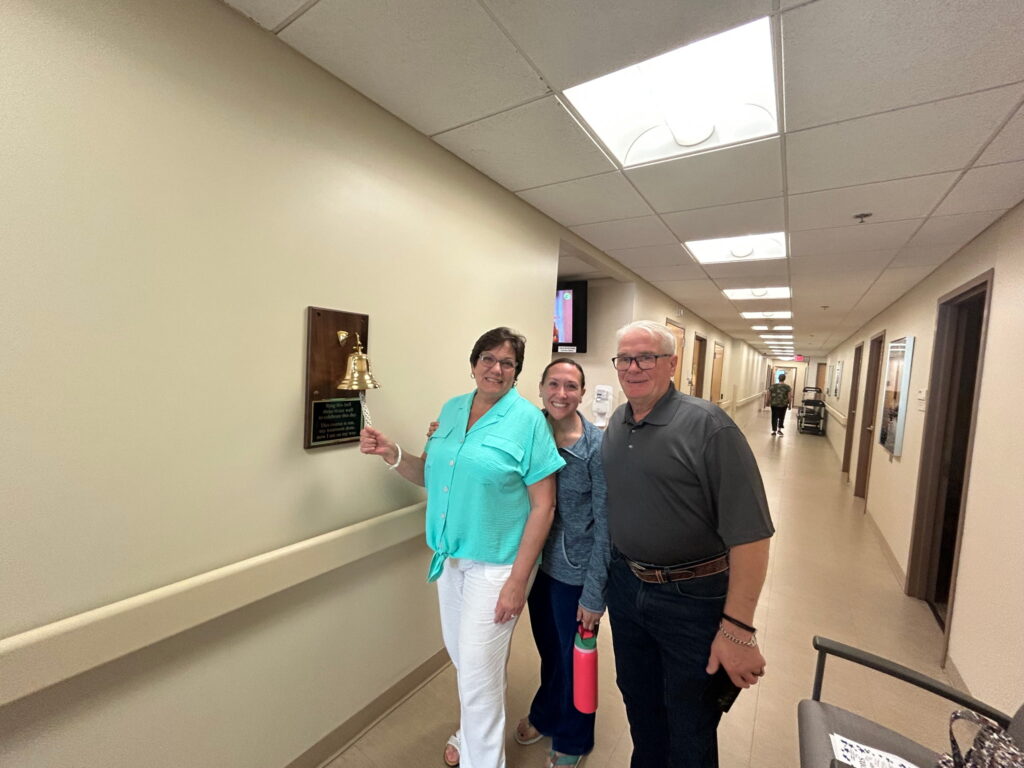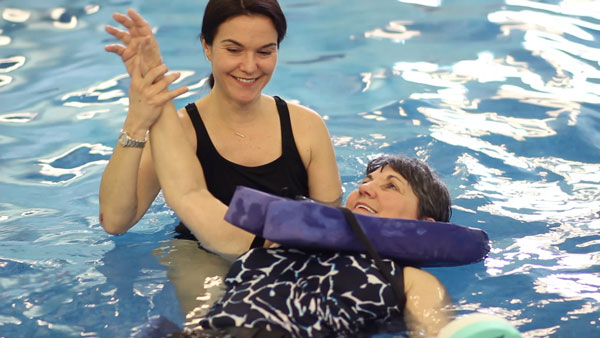
Aquatic Therapy Following Breast Cancer

By Susan Conklin, MPT, CLT
Did you know patients who have had breast cancer surgery or radiation treatment, have a higher risk of developing breast cancer-related lymphedema?
Lymphedema is swelling caused by removal or injury to the lymph nodes. Lymph nodes are responsible for moving lymph fluid around our body, so when they are damaged, fluid can sit in one area, causing swelling in the arms, torso, or legs.
Physical therapy and lymphedema management therapy done by certified lymphedema therapists can help reduce the swelling and help patients get back to living and enjoying life.
In addition, therapy in warm water can significantly reduce lymphedema and even prevent the development of lymphedema. Research has shown that lymphedema may develop months and even years after initial breast cancer treatment. Research also demonstrates the powerful impact aquatic therapy can have, showing a 33% reduction in lymphedema when patients complete a gentle aquatic exercise protocol.
Recent research has also found patients have great success when combining both aquatic therapy with manual lymph drainage performed by certified lymphedema therapists in a physical therapy session.
Just by being in the water, clients can use the aquatic properties of hydrostatic pressure and buoyancy to promote self-lymphatic drainage massage. Deep breathing and exercise while in the water can also help to reduce the effects of breast cancer treatment and prevent lymphedema.
Why Aquatic Exercise?
- Warm water provides resistive for assisting venous (blood flow) return.
- Hydrostatic pressure improves blood flow and decreases edema.
- Warm water provides massaging effects for the lymphatic system.
Specific goals of Aquacare’s Breast Cancer/Lymphedema Program:
- Restore proper body mechanics to optimize range of motion.
- Muscle contractions helps with venous return and improves lymphatic flow.
- Increase lean body mass thereby reducing the risk of lymphedema/breast cancer reoccurrence.
- Deep abdominal breathing in the water enhances pumping through the thoracic duct.
- Exercises in the water help to improve ROM, posture, and endurance.
If you are interested in additional information about our lymphedema program, call the Aquacare location nearest you or schedule onlie at www.aquacarephysicaltherapy.com. With 11 locations in Delaware and Maryland, chances are there’s an Aquacare in your neighborhood.
Susan Conklin, MPT, CLT, has 17 years of experience in physical therapy. She is a certified lymphedema therapist and offers specialized care for those recovering from breast cancer. Susan Conklin, MPT, CLT, is a graduate of Richard Stockton College (now Stockton University) where she earned a bachelor’s degree in 2004, followed by a master’s degree in 2006.
She then became a Certified Lymphedema Therapist in 2011, specializing in treating this often-undiagnosed condition. Her background is in acute care, working with patients who have had strokes and illnesses, joint replacements, and fracture repairs.


